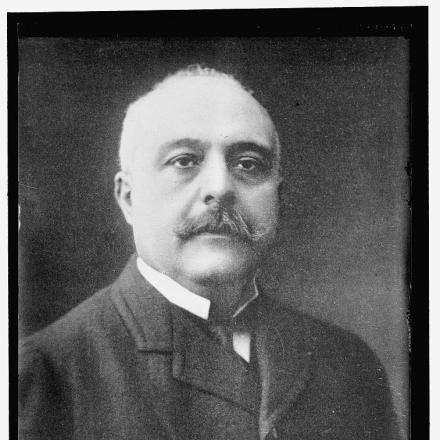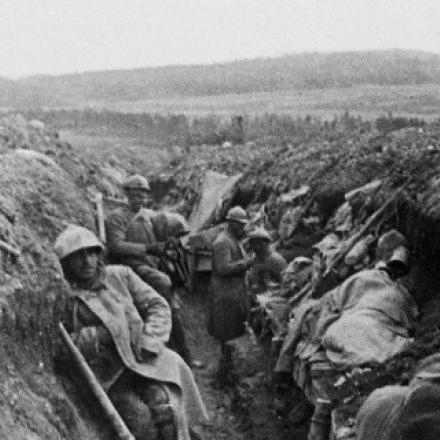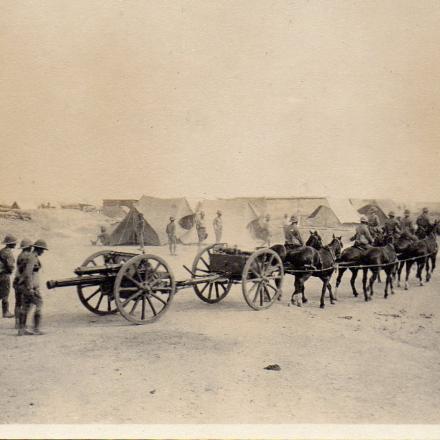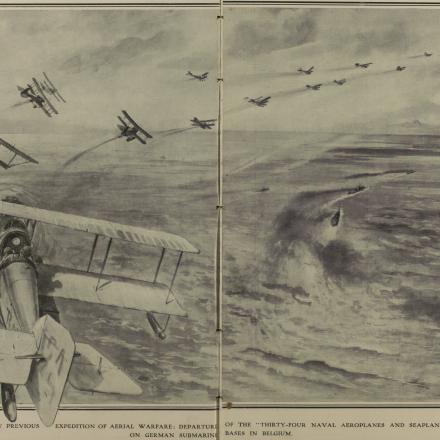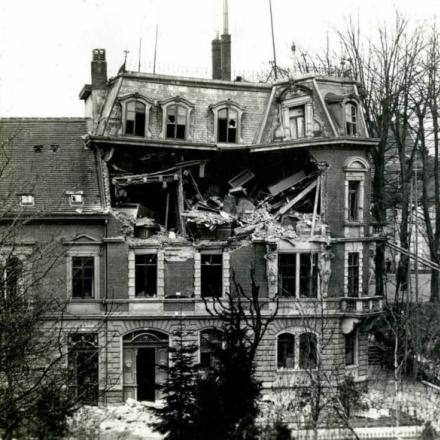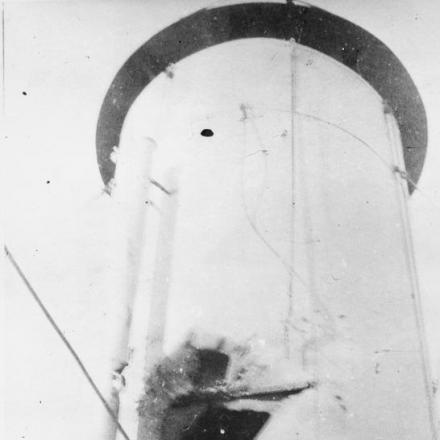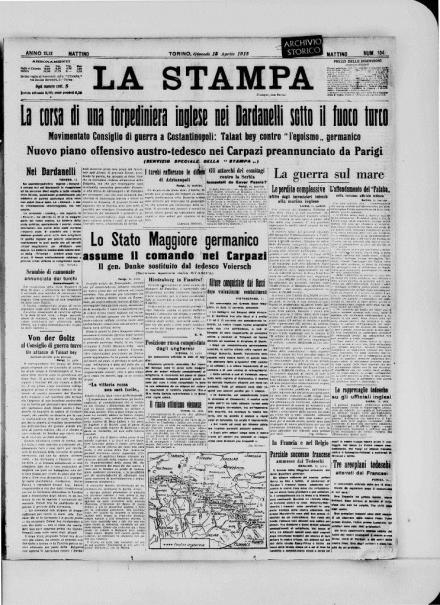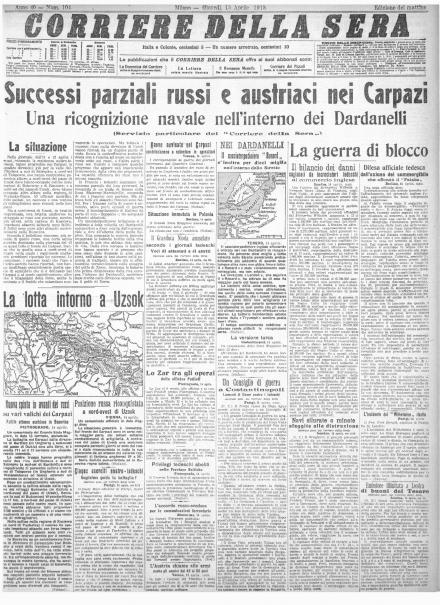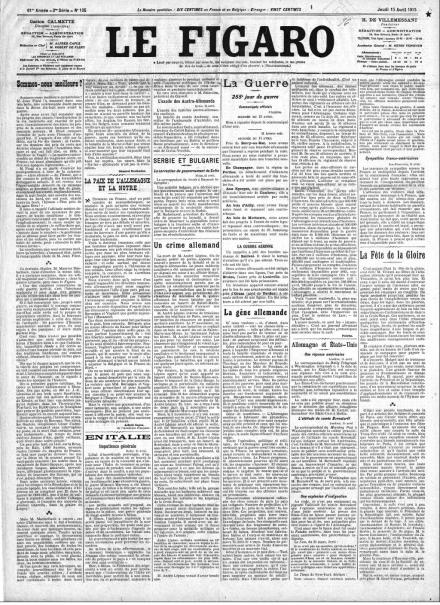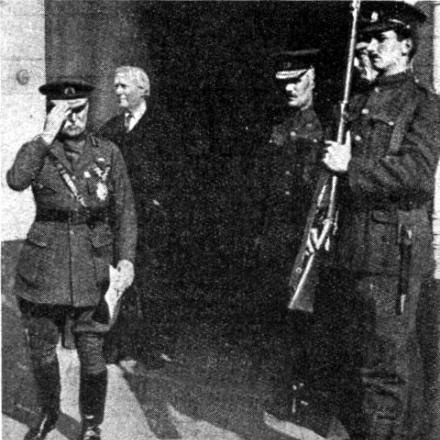Non una semplice rimpatriata
Il 15 aprile è una giornata di supposizioni per i quotidiani italiani. A Roma, a Palazzo Braschi, si è tenuta una riunione impossibile da ignorare. Vi partecipano solo cinque persone: c’è il Presidente del Consiglio Salandra, il Ministro degli esteri Sonnino e le tre maggiori cariche militari: il Ministro della guerra Zuppelli, quello della Marina Viale e il Generale Cadorna, Capo di Stato maggiore.
Con l’Europa dilaniata dal conflitto e con lo stallo delle trattative italo-austriache è difficile pensare a una semplice rimpatriata. Cosa si siano detti resta un mistero, qualsiasi indiscrezione allarmista viene smentita.
Le voci corrono anche al fronte: volendo credere ai comunicati tedeschi, i francesi avrebbero usato gas asfissiante a Verdun. Non ne sembrano molto convinti neanche a Berlino, giusto un paio di righe. Con il senno di poi è più probabile che si sia trattato di un’accusa costruita ad arte, un “mettere le mani avanti” a giustificare l’avvento dell’imminente guerra chimica. Manca poco ormai.
Davide Sartori
GLI AVVENIMENTI
Politica e società
- Pubblicati i dispacci di Sir John French riguardo le operazioni dal 2 febbraio al 20 marzo.
Fronte occidentale
- Ostenda viene bombardata da 15 areoplani Alleati.
- Duri scontri a Ostenda.
- Dirigibili francesi bombardano Friburgo.
Fronte orientale
- Dopo furiosi combattimenti, i russi progrediscono ancora a nord di Uzhok.
Fronte asiatico ed egiziano
- La flotta russa del Mar Nero bombarda Eregli e altri posti sulla costa dell’Anatolia.
- Finisce la battaglia di Shaibah (Mesopotamia).
Parole d'epoca
Dispaccio di Sir John French
France, 2nd February , 1915.
To Field-Marshal Earl Kitchener of Khartoum, K.P.,
G.C.B., O.M., etc.
My Lord,
I HAVE the honour to forward a further report on the operations of the Army under my command.
1 . In the period under review the salient feature was the presence of His Majesty the King in the Field. His Majesty arrived at Headquarters on the 30th November,
and left on the 5th December.
At a time when the strength and endurance of the troops had been tried to the utmost throughout the long and arduous Battle of Ypres-Armentieres, the presence of His Majesty in their midst was of the greatest possible help and encouragement.
His Majesty visited all parts of the extensive area of operations and held numerous inspections of the troops behind the line of trenches.
On the 1 6th November Lieutenant His Royal Highness the Prince of Wales, K.G., Grenadier Guards, joined my Staff as Aide-de-Camp.
2. Since the date of my last report the operations of the Army under my command have been subject almost entirely to the limitations of weather.
History teaches us that the course of campaigns in Europe, which have been actively prosecuted during the months of December and January, have been largely
influenced by weather conditions. It should, however, be thoroughly understood throughout the country that the most recent development of armaments and the latest
methods of conducting warfare have added greatly to the difficulties and drawbacks of a vigorous winter campaign.
